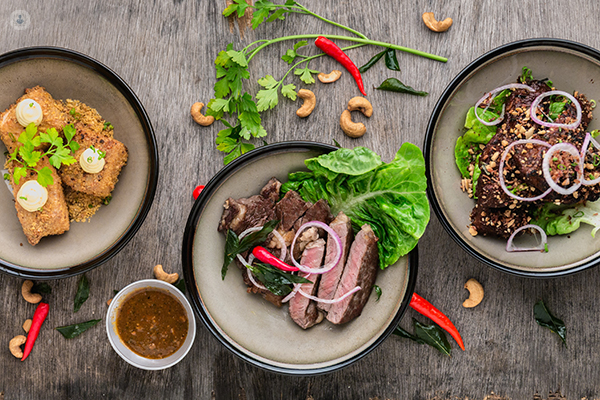

What is a high-protein diet?
A high-protein diet is often used to lose weight and to improve health. The diet often includes low amounts of fat and carbohydrates, and bases its main calorific intake on proteins. Proteins are molecules made up of amino acids. These nutrients are fundamental for the functioning of the cells of all living beings because they structure the tissues, help muscle regeneration (especially after physical exertion) and have a metabolic and regulatory function. Proteins are already present in any balanced diet, in the form of animal-based protein (eggs, meat or dairy) and plant-based protein sources (cereals, legumes and nuts). A diet is considered to be high in protein if more than 15% of total energy intake is sourced from protein.

Why would you follow a high-protein diet?
A high-protein diet can help you to lose weight. Proteins satiate hunger more than fats and carbohydrates. Therefore, consuming protein can help accelerate the metabolic process that eliminates calories and reduces the appetite. A diet high in proteins can also help to:
- Increase muscle gain (such a diet is often followed by body-builders for this reason)
- Strengthen bones
- Reduce muscle loss caused by ageing
- Improve wound healing
What does a high-protein diet consist of?
A high-protein diet can be easier to follow than others and can easily be tailored to your preferences and goals. For example, you may choose to avoid dairy products and choose dairy-free high-protein products or follow a low-carbohydrate and high-protein diet which can give better control over blood sugar levels. A high-protein diet can also be vegetarian, based on plant and legume proteins. A high-protein diet meal should include a large serving of protein, balanced with a healthy carbohydrate (e.g. quinoa, sweet potato or brown rice), vegetables and healthy fat sources (e.g. avocados, nuts and seeds).
Other foods that are high in protein are:
- Eggs
- Almonds and peanuts (as well as nut butters)
- Oats
- Chicken or turkey breast
- Greek yoghurt
- Cottage cheese
- Tuna
- Broccoli and Brussels sprouts
- Lentils
- Fish
Preparation for the high-protein diet:
It can be helpful to follow meal suggestions when adopting a high-protein diet, which may or may not be provided by a nutritionist or dietician.
Aftercare:
When returning to a normal diet, it is important to ensure it is also healthy and well-balanced. If you are adopting a high-protein diet to lose weight, it is important that regular exercise accompanies this diet to ensure overall health.
